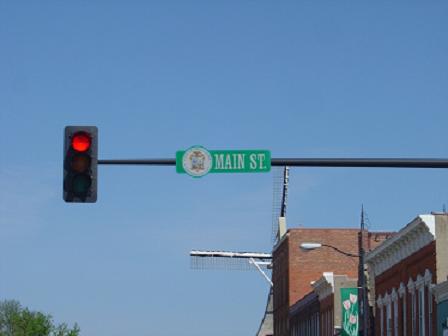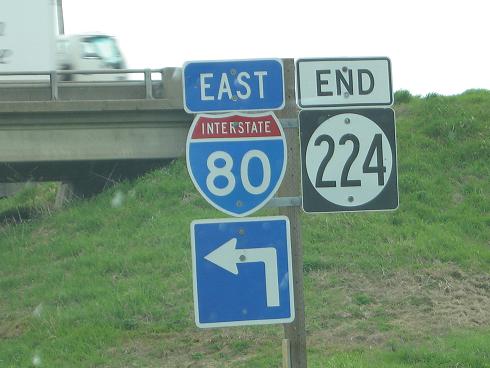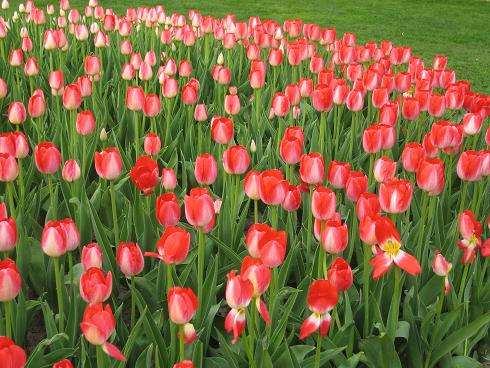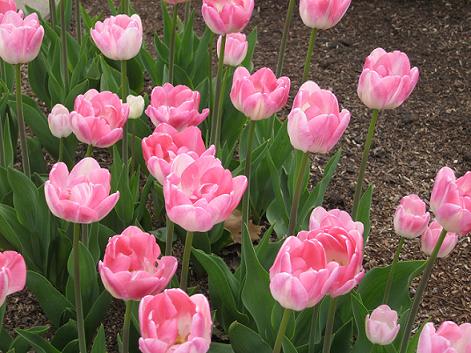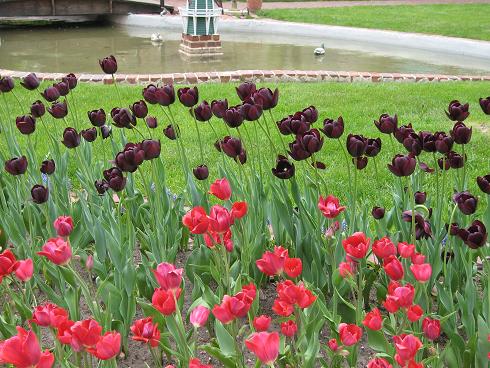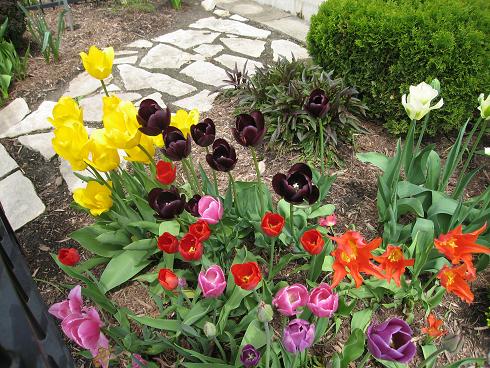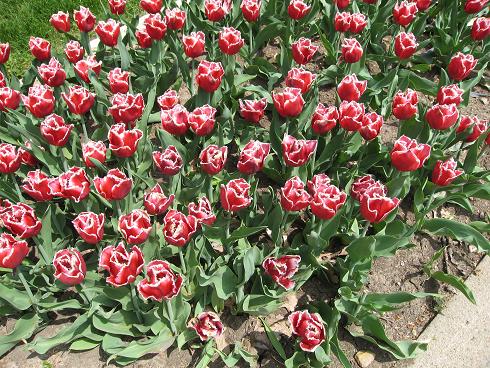Maxine and I have had several trips to China when we’ve had to rush to make connections1 between scheduled flights, and we’ve even missed connections a couple of times. This time, as we travelled to Hanghzhou for the Chinese New Year and meetings with our colleagues, we had the novel2 experience of racing in wheelchairs to catch our flight from Chicago O’Hare to Shanghai Pudong.
The trip started innocently enough3. We had arranged for electronic tickets4, roundtrip from Des Moines to Shanghai. Because the weather was blustery5 and snowy in Iowa, we elected to stay overnight in a motel near the Des Moines airport rather than to make the trip from Pella to Des Moines on possibly icy roads in the early morning. Kim and Blitzen drove us to Des Moines the day before, had a lunch with us, and then dropped us at our motel.
We woke at about 5:00am, dressed, and took the courtesy bus6 to the Des Moines airport, arriving two hours ahead of our flight time as required for our overseas flights. Our luggage – which we’d carefully packed to meet weight limits – checked through ok, and we passed through the security check without incident, then walked leisurely to Gate A-57 for our United Airlines flight to Chicago.
About 10 minutes before scheduled flight time, we heard our names announced8, informing us to report to the United9 clerk at the gate. We were told that our plane was delayed to Chicago so we could not leave Des Moines by United in time to make our connection to the United flight U835 to Shanghai. However, United was able to contact American Airlines and secure10 seats on flight #1109 which was departing for Chicago in a few minutes, and which would allow us to make our O’Hare connections on United U835 to Shanghai.
That seemed fair enough, and we were informed that our luggage would be taken over to the American Airlines flight and checked through to Shanghai as usual. They issued another set of luggage tags for us, so I now had one set from United, and another from American. O.K., no problem, so we lugged11 our carry-on bags12 down the corridor to American Airlines Gate #5A, received our seat assignments on the American Airlines flight to Chicago O’Hare, and congratulated ourselves at having been lucky. We had a nice trip to Chicago, circled a bit near O’Hare to account for the slight delay due to snowy weather, and we prepared to leave American Airlines to catch our United flight U835 to Shanghai. As we departed the plane, the friendly, helpful flight attendant looked at our tickets and told us that “the flight to Shanghai” would leave from Gate K29. Noting that Maxine was limping13 a bit as we exited the ramp14, the friendly attendant suggested that we arrange for a wheel chair for her for our trip to Gate K29, about 10 minutes from our arrival gate. Well, that was nice, and a rather small young woman with a comfortable wheel chair helped Maxine into the wheelchair, and off we headed for the Shanghai flight. We chatted with the young wheelchair pusher15, and arrived at Gate K29 just as boarding began for the flight to Shanghai.
As we handed our tickets to the clerk at the gate she said, “These are for the United flight U835, not the American Airlines flight #1355. You’ll have to go to the United Gate C9,” and as she glanced her computer she added, “United flight U835 is now boarding for departure and I don’t think you can walk there in time to make the connection. I can’t put you on this American Airlines flight because it is completely full, but if you can get another wheel chair for Don, you may be able to move faster than you could walk to Gate C9. I’ll call United and tell them you’re on your way.”
Another wheelchair with pusher was instantly at hand, and we were off on our race of the day. The fellow who had my chair was stronger and faster, so he took the lead16, weaving17 in and out of traffic at full trot18, into elevators, up, then down again, dashing19 down corridors, and trying to see United’s departure screens20 to verify that Gate C9 was the correct destination. I shouted at people in our way, “Coming through, look out, gangway21,” and other appropriate verbal warnings22 to those who did not see us rushing along in our race to Gate C9. People parted like the Red Sea for the Israelites23 without a single collision24. (Let it be known that United Gate C9 is about as far from American Airlines K29 as is possible in this mammoth25 airport!) We didn’t have a stopwatch26 on the trip, but it was at least a 10 minute dash, leaving our young wheelchair pushers tired and breathless, but proud of their performance. We paid our pushers well for their efforts, and, boarding our flight U835, we collapsed gratefully in our assigned business class seats27, well started on our way to Shanghai.
Things went well again, the trip was uneventful with comfortable seating, too much food, ample snacks, and a flight just about an hour later than scheduled. Our luggage arrived on the United carousel28 – not on the American Airlines. Immigration and customs clearances went smoothly29, and we pushed our luggage cart to the arrival gate, greeted Li Shumin and Jiang Jingyang and our driver for the trip to Hangzhou30. The driver brought the minivan31 to pick up the luggage, and we left the airport, noticing the heavy traffic as we moved from the airport onto the highway. There was a mixture of sleet32 and snow, lots of slush33 on the pavement, and our driver began his skilled demonstration of switching lanes34, dodging35 other cars, busses and trucks, and moving as fast as the flow of traffic36 would allow. He knew what he was doing, and we were off to Hangzhou, though the heavy traffic and icy roads required more than an hour before we left Shanghai. We continued to talk, contact our friends37 by cell phones now and then, eat snacks and drink water as we traveled. It was more than four hours later when we reached the service area when the driver asked whether we needed a rest stop – we really did38, though we hadn’t thought much about it. Everyone in the car bobbed, weaved and shoved39 through crowds to the restroom areas, more than glad to have the break. We dispatched our errands40, quickly returned to the van and headed toward Hangzhou.
The first exit to Hangzhou41 would have been the first choice for the driver, but as we approached the exit area it was evident that many cars and trucks were stuck in the snow and ice on the slight incline that led into Hangzhou on that exit ramp14. We continued on to the next exit which was more nearly level, and entered Hangzhou with little difficulty. Throughout the trip from Shanghai we had mixed snow and rain, some fog, and a temperature that stayed at about the freezing point. The driver wove42 his way through icy, slushy streets43 along landmarks that looked familiar to us from previous trips, but with a blanket of about a foot of snow44. It felt good to be in our “second home45” again even though it was the first heavy snow we had ever seen here.
We arrived at the Zhejiang University Science Park46 hotel at about 10:00pm where we found He, Ying, and Haihong in their overcoats in our room, waiting for us, but insistent that they leave immediately and let us get ready for a sleep. We agreed that was a good idea. It had been a long travel day of about 30 hours since we started from Des Moines, and despite the comfortable accommodations we were tired, and grateful for the welcome sleep in Hangzhou.
Notes:
1. connections: the correct changes from one part of a trip to another by going to the correct gate and presenting a boarding pass and ticket for the next part of the trip (在机场转机).
2. novel: new or unusual (新奇的,不同寻常的).
3. The trip started innocently enough: 旅途很单纯自然地开始了。
4. electronic tickets: computer generated proof of purchase of a ticket (电子机票).
5. blustery: windy and stormy (狂风大作的).
6. courtesy bus: a bus or van furnished by a hotel or motel which delivers passengers from the hotel to the airport departure area at no cost to the passenger (旅馆的免费班车).
7. Gate A-5: A-5登机口
8. we heard our names announced: 我们听到广播里在叫我们的名字
9. United: United Airlines (美国联合航空公司).
10. secure: get or achieve something (获得,弄到).
11. lugged: pull or carry something heavy with difficulty (用力拖、拉、搬运).
12. carry-on bags: 随身行李包
13. limping: walking with the favoring of one leg and a noticeable difficulty (一拐一拐地走).
14. ramp: 斜坡
15. wheelchair pusher: 推轮椅的人
16. took the lead: be the first to start doing something or be most active in doing something (带头).
17. weaving: moving first to the right, then to the left around other people when moving more rapidly than most walkers (迂回行进,穿行).
18. at full trot: at a pace faster than normal walking, but not running at full speed (以疾走的速度).
19. dashing: going or running somewhere very quickly (猛冲,飞奔).
20. United’s departure screens: 列有美联航离港信息的屏幕
21. “Coming through, look out, gangway”: slang expressions in English which mean get out of the way, or watch out to avoid a collision with another person or persons (闪开,留神,让路).
22. other verbal warnings: 其他提醒人的话
23. parted like the Red Sea for the Israelites: a metaphor from a biblical story in the Old Testament of the Bible which states that the Israelites who, when they were pursued by their enemies, came to the Red Sea, and God miraculously parted the waters of the sea to allow the Israelites to pass through safely; then caused the water to return to prevent pursuit by the enemies (像红海为希伯来人分开一样。这是出自于圣经的典故:据《圣经》的《旧约全书》记载,希伯来人受到敌人的追赶来到红海边,上帝奇迹般地把海水分开,让希伯来人安全通过,然后又让海水退回以阻止敌人的追踪。).
24. collision: 碰撞
25. mammoth: very large (巨大的,庞大的).
26. stopwatch: a watch especially adapted for timing races (比赛用的跑表).
27. collapsed gratefully in our assigned business class seats: 瘫倒在为我们安排好的商务舱座椅上,心里非常感激。
28. carousel: the moving belt that you collect your bags from at an airport (机场提取行李的传送带).
29. Immigration and customs clearances went smoothly:入境检查和过海关都顺利通过。
30. greeted Li Shumin and Jiang Jingyang and our driver for the trip to Hangzhou:遇到了来迎接我们的李淑敏,蒋景阳和开车去杭州的司机。
31. minivan: 小面包车
32. sleet: 雨夹雪
33. slush: 开始融化的雪
34. switching lanes: moving from one lane of the street or highway to another to facilitate forward progress in congested traffic (换车道).
35. dodging: avoiding something or someone by moving quickly (闪开,躲开).
36. flow of traffic: 车流
37. contact our friends: 跟朋友联系
38. we really did: we really needed a rest stop
39. bobbed, weaved and shoved: move quickly one way, then another, and gently shoving other people, and working one’s way (into the restroom areas) (一会儿朝这边走一会儿朝那边走,急急忙忙,推推搡搡地前进).
40. dispatched our errands: took care of our needs and business (处理掉该做的事情).
41. The first exit to Hangzhou:进杭州的第一个入口
42. wove: (weave 的过去式) 迂回行进,穿行
43. slushy streets: 覆盖着融雪的街道
44. a blanket of about a foot of snow: 一英尺厚的雪
45. “second home”: 第二个家
46. Zhejiang University Science Park:浙江大学科技园
